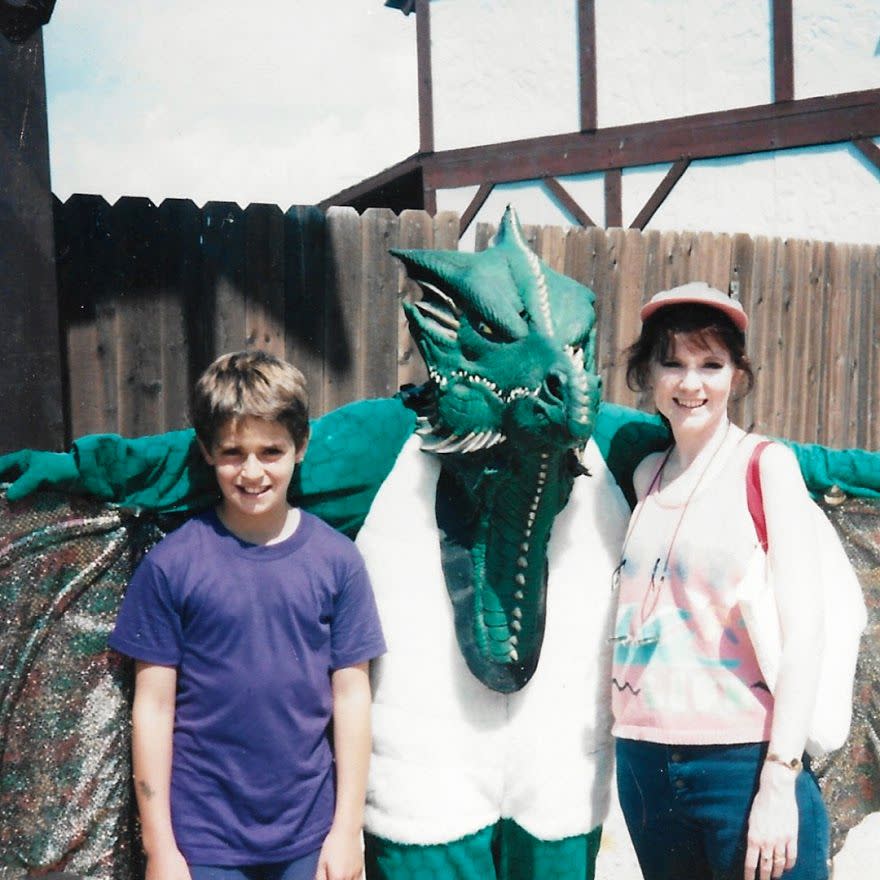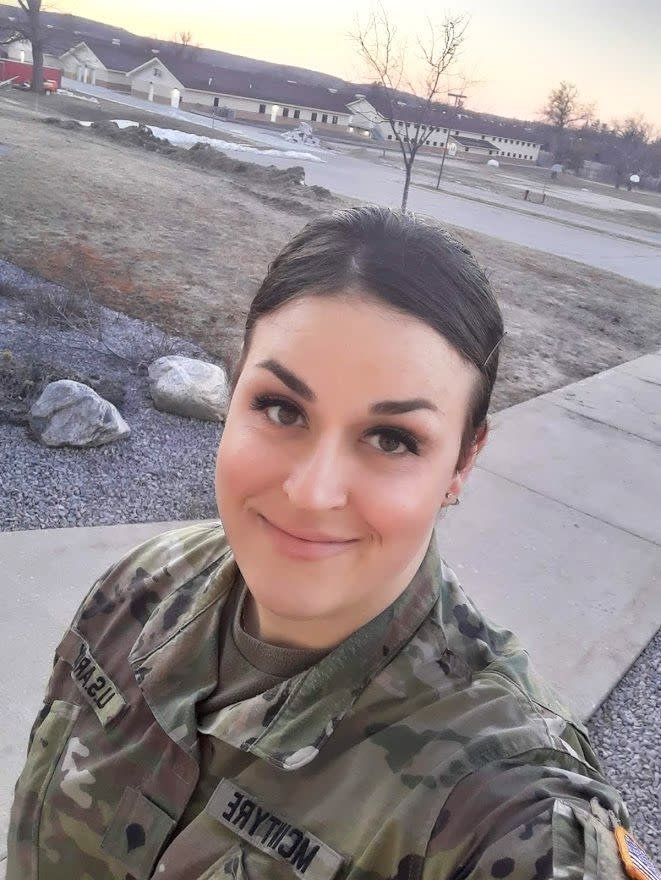I'm a Transgender Army Vet. Reversing Trump's Military Ban Isn't Enough.

- Oops!Something went wrong.Please try again later.
When President Biden signed an executive order to overturn the transgender military ban, Blaire McIntyre felt safe for the first time in a very long time. McIntyre, who served with the 101st Army Airborne Division in Afghanistan and Michigan Army National Guard, dropped her discrimination lawsuit in hopes of a more inclusive military. But the intolerance didn't magically dissipate overnight. Below, in her own words, McIntyre on the continued harassment trans service members face for simply for being who they are—and how we can close this exclusionary chapter for good.
I was born to be in the military. My grandfather was an infantryman who served in Vietnam, and my stepmother was a soldier in the Army. I grew up believing there was no greater honor than to fight for your country—and I couldn't wait until it was my turn.
But I had another reason for wanting to enlist.
My earliest memory is at the beach. I pointed to a beautiful woman in a bikini and told my mom, "I can't wait until I look like that." She responded, "Dave, it doesn't work that way." I was crushed. Why couldn't my mom see me like I saw myself?
I hoped that following in my family's footsteps might "fix" my gender dysphoria. Instead, joining the Army only made me more confident in who I am. Coming out as a transgender woman in 2019 was a big relief, but it was also the scariest moment of my life. Because of who I am, my livelihood—the one thing I always had confidence in—was under threat.
Biden's reversal of the transgender military ban reversal has been a good first step toward inclusive protection for those who defend our nation, but it's only just that: a start.
Today I am out and proud, but the word "transgender" was foreign to me growing up. I confided my feelings in my closest friends, who reasoned I was gay. Our small Michigan town had little access to information about the LGBTQ+ community, and I assumed they were right. It scared me. I closed up, and never brought up those feelings again.
In college, I met with an Army recruiter who told me, "We're going to strip you of everything that you have, and build you up to how we want you."
"Perfect," I said. "Sign me up."

I was called a faggot and beat up at basic training, but I blamed myself for it all. Maybe if I wasn't different, I wouldn't be getting hurt. Everything changed when I went to Afghanistan. I was deployed for a year, and grew close to several gay and lesbian soldiers who had not come out yet. When you don't know whether tomorrow will be your last day on earth, you tend to spill your secrets.
I had to be careful who I told and what I said, but the people I confided in were very accepting. We all joked that our friendships were like confessions, because we revealed things we were scared to die with. My fear, I told them, was that I might die a man.
Back in the U.S., I finished out my contract in active duty and married my high school sweetheart. My wife used to introduce me as her "metrosexual husband," because I was so feminine. I think she always suspected it was more than that.
I told her about my gender dysphoria over dinner one night. It was a huge relief—if only for a moment. "You know there's a trans ban in the military," she said. "And, sweetheart, that's your job."
After coming home from Afghanistan, I had re-enlisted in the Michigan Army National Guard and was also working as a uniformed civilian National Guard employee specializing in armament.
My wife and I had two kids and couldn't afford for me to be out of a job. I took hormones, changed my name to "Blaire," and legally switched my gender to female. But I was still being asked to present as male at work, and most of my colleagues continued to call me "Dave." I tried to make it work, but the more I transitioned, the harder it became to be both Blaire and Dave.

When Biden got elected, it felt—for the very first time—like the trans community was being recognized in a big way. During his first week in office, Biden signed an executive order repealing the military ban. But my tears of joy quickly turned to tears of despair.
My car tires were slashed at work and colleagues blocked doorways so that I couldn't enter. When I told a superior about a rumor that someone wanted to rape and drag me from a bumper behind their car, he responded, "Yeah, we're going to need more training."
I was done with the military in that moment. This part of my life had become my own kind of living hell. I quit and never looked back.

For so long the military had a "we deal with this internally" attitude. That, I think, is changing. Long overdue conversations are now taking place, and changes are in the works. But there's still a lot of ground to make up. Complaints should be taken seriously, and new policies need to be enforced.
I have so much hope that things will get better for transgender service members. I had to leave my career, one that I loved, but the silver lining is that I'm leaving it in a better place—and hopefully I played a small part in that.
You Might Also Like

